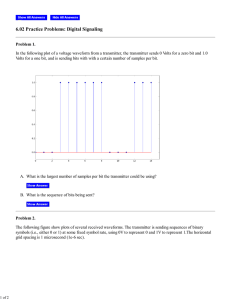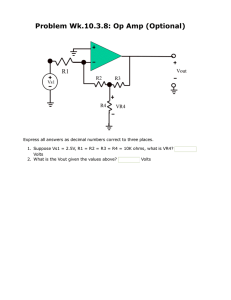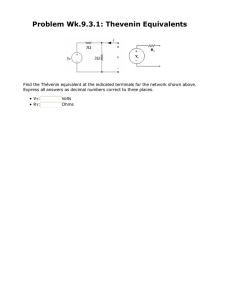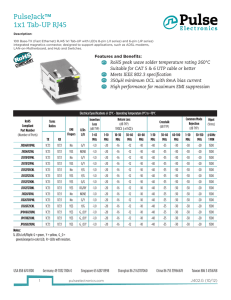6.02 Practice Problems: Digital Signaling
advertisement
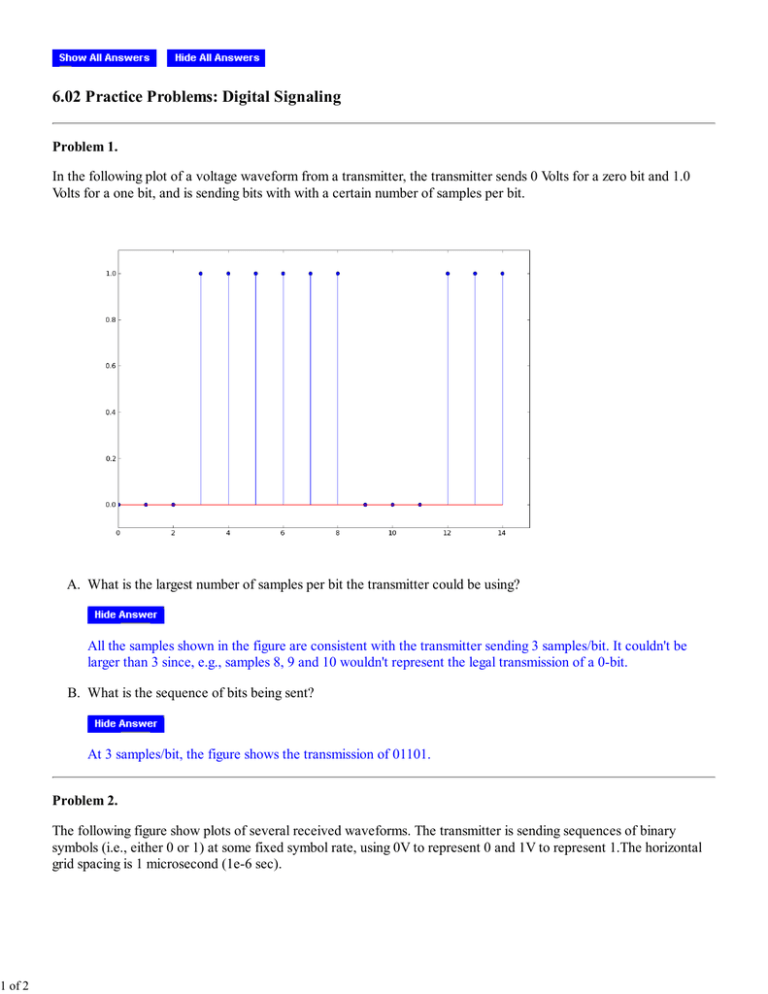
6.02 Practice Problems: Digital Signaling Problem 1. In the following plot of a voltage waveform from a transmitter, the transmitter sends 0 Volts for a zero bit and 1.0 Volts for a one bit, and is sending bits with with a certain number of samples per bit. A. What is the largest number of samples per bit the transmitter could be using? All the samples shown in the figure are consistent with the transmitter sending 3 samples/bit. It couldn't be larger than 3 since, e.g., samples 8, 9 and 10 wouldn't represent the legal transmission of a 0-bit. B. What is the sequence of bits being sent? At 3 samples/bit, the figure shows the transmission of 01101. Problem 2. The following figure show plots of several received waveforms. The transmitter is sending sequences of binary symbols (i.e., either 0 or 1) at some fixed symbol rate, using 0V to represent 0 and 1V to represent 1.The horizontal grid spacing is 1 microsecond (1e-6 sec). 1 of 2 Answer the following questions for each plot: 1. Find the slowest symbol rate that is consistent with the transitions in the waveform. 2. Using your answer in question 1, what is the decoded bit string? a) 1e6 symbols/sec, 101010101010101010 b) 333,333 symbols/sec, 101101 c) 1e6 symbols/sec, 101100111001110110 d) 5e5 symbols/sec, 100010001 2 of 2 MIT OpenCourseWare http://ocw.mit.edu 6.02 Introduction to EECS II: Digital Communication Systems Fall 2012 For information about citing these materials or our Terms of Use, visit: http://ocw.mit.edu/terms.
